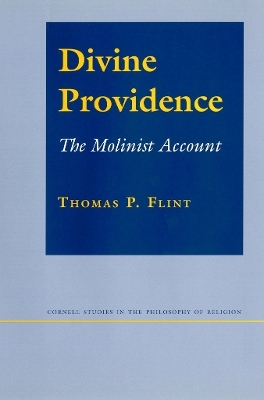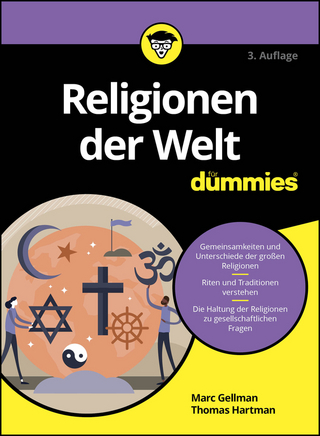
Divine Providence
The Molinist Account
Seiten
2006
Cornell University Press (Verlag)
978-0-8014-7336-4 (ISBN)
Cornell University Press (Verlag)
978-0-8014-7336-4 (ISBN)
Thomas P. Flint develops and defends the idea of divine providence sketched by Luis de Molina, the sixteenth-century Jesuit theologian. The Molinist account of divine providence reconciles two claims long thought to be incompatible: that God is the...
Divine Providence is a remarkable book that should quickly earn its place as the leading authoritative contemporary exposition and defense of Molinism. ―William Hasker, author of God, Time, and Knowledge
Thomas P. Flint develops and defends the idea of divine providence sketched by Luis de Molina, the sixteenth-century Jesuit theologian. The Molinist account of divine providence reconciles two claims long thought to be incompatible: that God is the all-knowing governor of the universe and that individual freedom can prevail only in a universe free of absolute determinism. The Molinist concept of middle knowledge holds that God knows, though he has no control over, truths about how any individual would freely choose to act in any situation, even if the person never encounters that situation. Given such knowledge, God can be truly providential while leaving his creatures genuinely free.
Divine Providence is by far the most detailed and extensive presentation of the Molinist view ever written. Middle knowledge is hotly debated in philosophical theology, and the controversy spills over into metaphysics and moral philosophy as well. Flint ably defends the concept against its most influential contemporary critics, and shows its importance to Christian practice. With particular originality and sophistication, he applies Molinism to such aspects of providence as prayer, prophecy, and the notion of papal infallibility, teasing out the full range of implications for traditional Christianity.
Divine Providence is a remarkable book that should quickly earn its place as the leading authoritative contemporary exposition and defense of Molinism. ―William Hasker, author of God, Time, and Knowledge
Thomas P. Flint develops and defends the idea of divine providence sketched by Luis de Molina, the sixteenth-century Jesuit theologian. The Molinist account of divine providence reconciles two claims long thought to be incompatible: that God is the all-knowing governor of the universe and that individual freedom can prevail only in a universe free of absolute determinism. The Molinist concept of middle knowledge holds that God knows, though he has no control over, truths about how any individual would freely choose to act in any situation, even if the person never encounters that situation. Given such knowledge, God can be truly providential while leaving his creatures genuinely free.
Divine Providence is by far the most detailed and extensive presentation of the Molinist view ever written. Middle knowledge is hotly debated in philosophical theology, and the controversy spills over into metaphysics and moral philosophy as well. Flint ably defends the concept against its most influential contemporary critics, and shows its importance to Christian practice. With particular originality and sophistication, he applies Molinism to such aspects of providence as prayer, prophecy, and the notion of papal infallibility, teasing out the full range of implications for traditional Christianity.
Thomas P. Flint is Professor of Philosophy and Director of the Center for Philosophy of Religion at the University of Notre Dame. He is the editor of Christian Philosophy and coeditor of Hermes and Athena: Biblical Exegesis and Philosophical Theology.
| Erscheint lt. Verlag | 9.10.2006 |
|---|---|
| Reihe/Serie | Cornell Studies in the Philosophy of Religion |
| Zusatzinfo | 5 Figures |
| Verlagsort | Ithaca |
| Sprache | englisch |
| Maße | 152 x 229 mm |
| Gewicht | 454 g |
| Themenwelt | Geisteswissenschaften ► Religion / Theologie |
| ISBN-10 | 0-8014-7336-5 / 0801473365 |
| ISBN-13 | 978-0-8014-7336-4 / 9780801473364 |
| Zustand | Neuware |
| Haben Sie eine Frage zum Produkt? |
Mehr entdecken
aus dem Bereich
aus dem Bereich
die Essenz meiner Lehre
Buch | Hardcover (2023)
Verlag Herder
48,00 €
eine Philosophie der besten Jahre
Buch | Hardcover (2024)
Carl Hanser (Verlag)
25,00 €


